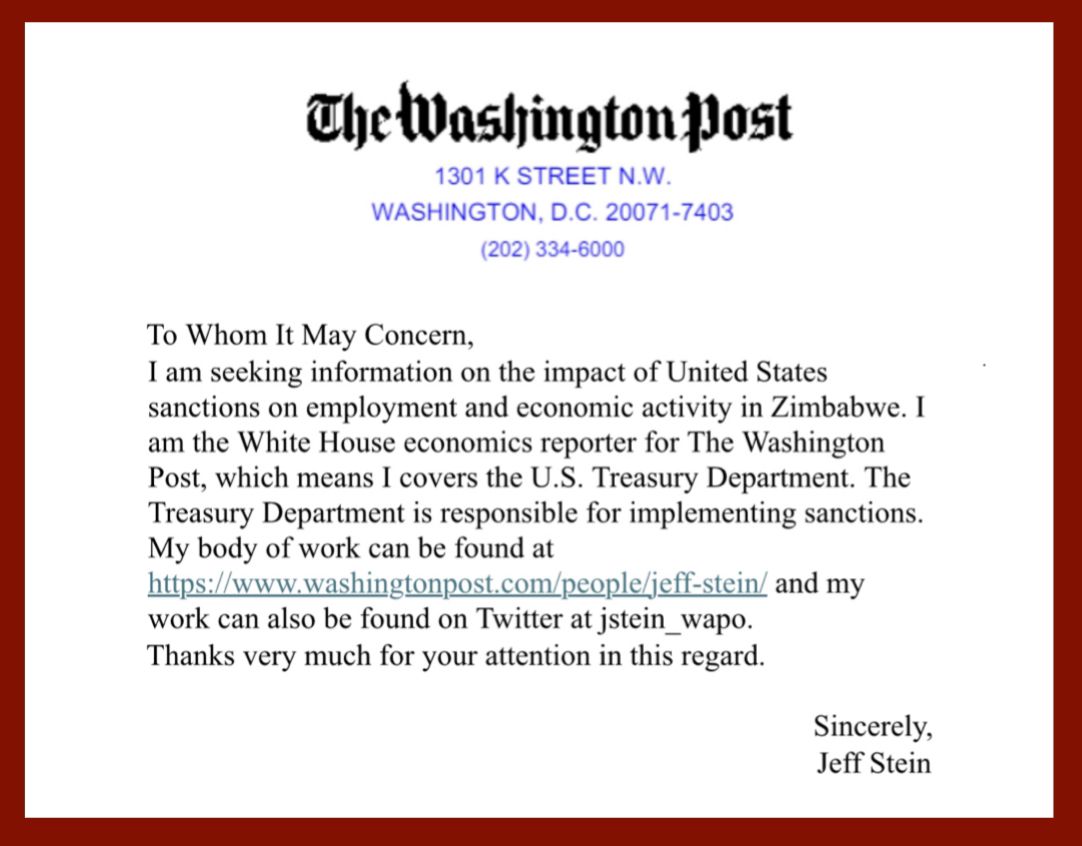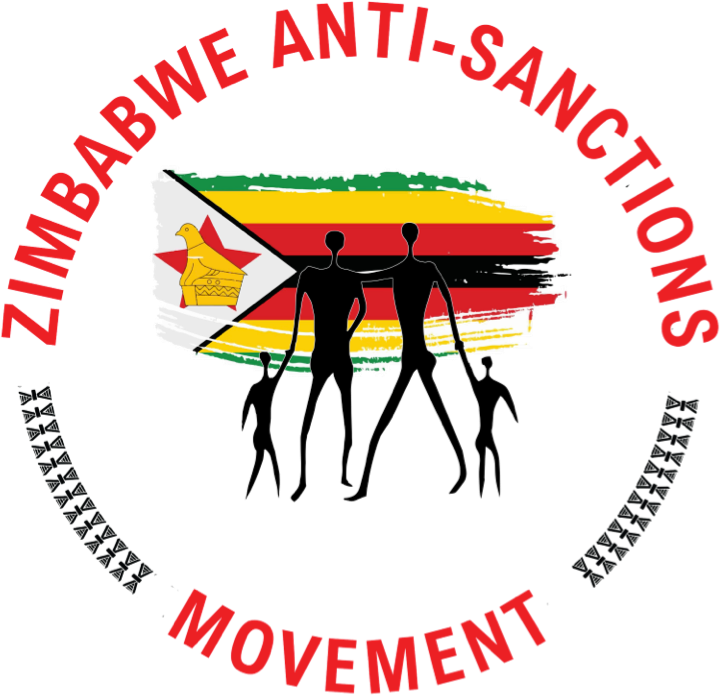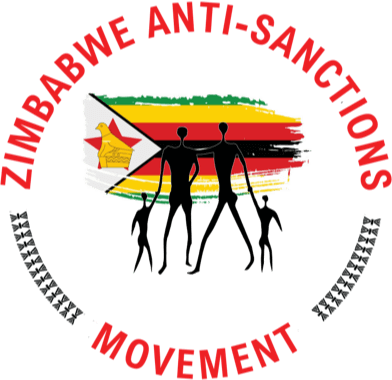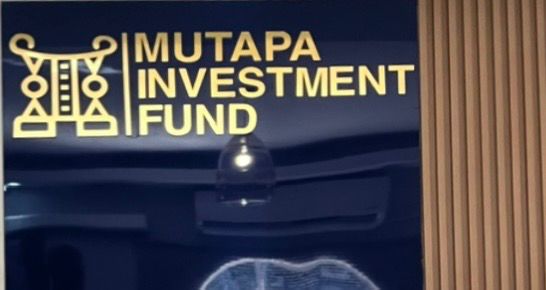
For over a month, a contact of mine from the most important political newspaper in the U.S. -Washington Post- has sought to write a piece lobbying the U.S. Congress and the Presidency to consider lifting Magnitsky sanctions on Zimbabwe.
To write this article, the writer, an economics report, requested information on job losses suffered by companies, parastatals and government due to illegal sanctions since 2019, and the advent of Magnitsky sanctions three months ago.
After struggling to get this information, I asked him to write something on a letterhead so that I could send it to government officials, and maybe then they would appreciate the urgency and gather the information for us.
Despite sending this request to relevant government stakeholders, I received no response, yet every day, many of these officials are lamenting the same #MagnitskySanctions that are targeting the President, Vice President, defense Minister, key investors and strategic national companies.
Why would there be no interest in contributing to a very influential paper that speaks directly to US lawmakers, the U.S. Treasury and the White House, when we need sanctions removed off the 11 very important individuals and entities which are still being targeted extrajudicially by the remaining illegal measures?
What’s even more frustrating is that just three weeks ago, Finance Minister, Mthuli Ncube, was in New York asking the U.S. government to give its financial institutions a nudge to trade with Zimbabwe, now that sanctions have been removed, as some U.S. banks were still reluctant to do business with Zimbabwe due to fear of sanctions penalties.
Now, a senior economics reporter from an influential paper that speaks both to U.S. politicians and business, is offering to write a free story on the impact of sanctions on Zimbabwe, that will reach U.S. lawmakers, to persuade them to lobby for the removal of the remaining measures. But not a single government official in Zimbabwe is interested in leveraging this influential media relationship, to reset the nation’s image in the American psyche, yet we say we are open for business.
This lack of urgency and vision in government communications is concerning and an illustration of the failure by government to coordinate and work together with independent professional communicators who are fighting to revive the nations image and those fighting the remaining sanctions.
We clearly continue to work in silos, hindering our ability unite as a nation and leverage the best potential of the country, to make Zimbabwe a better country for all. Many Zimbabweans want to come back home, to contribute to the rebuilding, but this can’t be possible if we are not ensuring that the country is taking advantage of all equity building opportunities.
This is why you often see me selfishly claiming credit for fighting sanctions alone, because whenever we reached out to government during the fight, we were met with resistance, as if we were the enemy. On many occasions, we requested firsthand evidence [which the government has] for our court case in South Africa -as we are doing now in preparation for the reparations fight- and no one wanted to share public information. Even the BAAS (Broad Alliance Against Sanctions) were also denied evidence for their own case in Harare.
It’s almost as if people in these ministries don’t want anyone fighting these sanctions. But, can we continue to blame western media for sidelining Zimbabwe, when we shun such opportunities to build much needed media relationships?
Soon, you will see the same government seek out lobbyists to pay hundreds of thousands of dollars to reach the U.S. media and lawmakers, yet they spat in the face of a major media house that reaches critical US stakeholders, when it reached out.
Iwe neni tine basa. Asante Sana.



